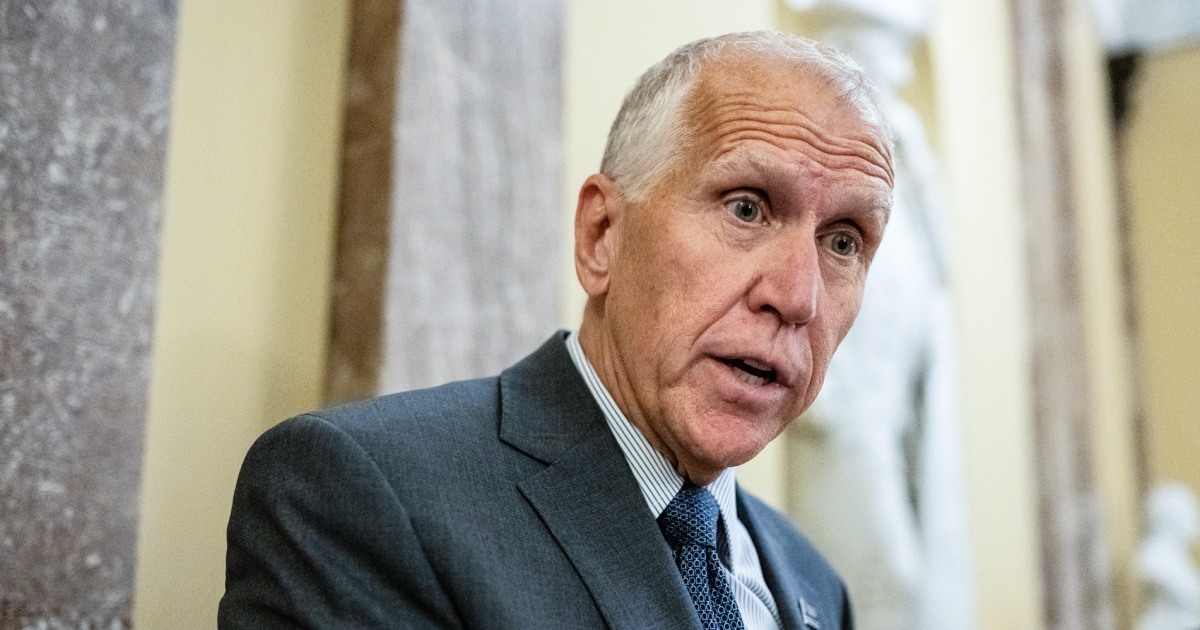GOP Governors Send National Guard to D.C.: Controversy and Concern Ensue

Introduction
The recent announcement that GOP governors are planning to send their National Guard units to Washington D.C. has sparked controversy and concern. This move comes as National Guard troops in the city may soon be armed, according to reports from The Washington Post. This development has raised questions about the role of the National Guard in D.C. and the potential implications of having multiple states sending their own troops to the city.
Key Details
The decision by GOP governors to send their National Guard units to D.C. is seen by some as a show of support for President Trump, who has called for a "law and order" response to recent protests and unrest in the city. However, others view this move as an unnecessary and potentially dangerous escalation of tensions, as National Guard troops are not trained for law enforcement duties. Additionally, the potential for armed National Guard troops in the city raises concerns about the use of lethal force against protesters.
Impact
The decision by GOP governors to send their National Guard units to D.C. has raised questions about the role and authority of the National Guard in the city. While the National Guard is under the command of state governors, they can also be called into federal service by the President. This raises concerns about a potential clash between state and federal authority, as well as the potential for National Guard troops from different states to have conflicting orders and agendas.
About the Organizations Mentioned
GOP
The **GOP**, or **Grand Old Party**, is the widely recognized nickname for the **Republican Party** of the United States, a major conservative political party founded in 1854. It originated from anti-slavery activists opposing the Kansas-Nebraska Act, uniting former Whigs and Free Soilers with a platform centered on halting the expansion of slavery. The party's early historic milestone was the election of Abraham Lincoln in 1860, which precipitated the Civil War; under Lincoln’s leadership, the GOP focused on preserving the Union and abolishing slavery[1][2][3]. Throughout its history, the Republican Party has evolved from its abolitionist roots to champion business interests, industrial growth, and economic policies favoring limited government intervention. In the late 19th and early 20th centuries, it promoted protective tariffs and infrastructure development. The party experienced fluctuating influence, losing ground during the New Deal era but regaining prominence with Dwight D. Eisenhower’s presidency in the 1950s, marked by moderate conservatism[1][2]. Today, the GOP advocates for reduced taxes, conservative social policies, limited government regulation, strong national defense, and states’ rights. It remains one of the two dominant forces in American politics, consistently shaping legislative agendas and national discourse[2]. The party is organized and led nationally by the **Republican National Committee (RNC)**, which manages fundraising, election strategies, and the party platform, coordinating efforts across states and counties under the leadership of a chairman[3][4]. Notably, the acronym "GOP" was popularized in the late 19th century and originally stood for "Grand Old Party," symbolizing the party's legacy in preserving the Union and championing liberty. It is now a common term in political commentary and media[3][5]. In recent years, the GOP has undergone significant membership changes in Congress and leadership adjustments, reflecting its dynamic role in U.S. politics as
National_Guard
The **National Guard** is a unique U.S. military force with both state and federal roles, composed of the Army National Guard and Air National Guard. It serves dual missions: responding to state emergencies like natural disasters and civil unrest, and supporting federal military operations overseas. Guard members typically serve part-time while maintaining civilian careers, committing to regular training and activation when needed. The National Guard Bureau, led by a four-star general on the Joint Chiefs of Staff, oversees these components across all 50 states, D.C., and U.S. territories, with a total force exceeding 430,000 personnel as of 2025[3][6]. Historically, the National Guard traces its roots back to colonial militias from 1636, evolving through key legislation such as the Militia Act of 1903 and the National Defense Act of 1916, which formalized federal oversight and mobilization authority. The Total Force Policy of 1973 further integrated the Guard with active-duty forces to ensure a unified military capability[6]. In recent years, the National Guard has excelled in recruitment and operational readiness. In fiscal year 2025, it surpassed recruiting goals by enlisting nearly 50,000 new members, reflecting a historic surge in military enlistment. This success is attributed to appealing career training, practical experience across 200+ specialties, and marketing efforts like the “Uncommon is Calling” campaign highlighting the balance between civilian and military life[2][9]. The Guard now fields over 433,000 personnel. Operationally, the National Guard provides a cost-effective 20% of the joint force with only 4% of the Department of War budget. Its core missions include homeland defense, supporting combat operations globally, building partnerships, and assisting warfighters and families. The Guard also aligns with national defense strategies emphasizing homeland security, Indo-Pacific deterrence, and international burden-sharing[2][4]. Notable aspects include their domestic deployments, such as the 2025 federal
Washington_Post
## Overview The Washington Post is a leading American daily newspaper based in Washington, D.C., recognized for its deep coverage of national politics and its influential role in investigative journalism[1][3]. It is the most widely circulated newspaper in the Washington metropolitan area and maintains a significant national and digital audience, with 2.5 million digital subscribers as of 2023[1]. The Post is considered a newspaper of record in the U.S. and operates international news hubs in London and Seoul, reflecting its global reach[1]. ## History Founded in 1877 by Stilson Hutchins, The Washington Post initially promoted Democratic Party interests but struggled financially in its early decades[1][2]. In 1933, financier Eugene Meyer purchased the paper out of bankruptcy, revitalizing its reputation and establishing a tradition of journalistic integrity[1][2]. Ownership passed to his daughter, Katharine Graham, and her husband, Philip Graham, who expanded the paper’s influence by acquiring rival publications and investing in quality reporting[1][2]. The Post’s watershed moment came in 1971 with the publication of the Pentagon Papers, which fueled opposition to the Vietnam War, and in 1972–74 with its groundbreaking Watergate investigation by Bob Woodward and Carl Bernstein, which led to President Richard Nixon’s resignation[1][3]. These episodes cemented The Post’s reputation for holding power to account. ## Key Achievements The Washington Post has been awarded the Pulitzer Prize 76 times—second only to The New York Times—alongside 18 Nieman Fellowships and 368 White House News Photographers Association awards[1][3]. Its journalists are renowned for their political reporting and in-depth investigations, and the paper remains one of the few U.S. dailies with active foreign bureaus[1]. ## Current Status In 2013, the Graham family sold the paper to Jeff Bezos’s Nash Holdings for $250 million,


:focal(0x0:3000x2000)/static.texastribune.org/media/files/f6d94f38200a0464c1c4a0a414a44463/Quorum%20Break%20ABIA%20BD%20TT%2003.jpg)












